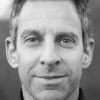10 Best-Selling Philosophy of Mind Books Millions Love
Explore best-selling Philosophy of Mind books recommended by Sean Carroll, Michael Shermer, and Donald Hoffman, blending expert insights with popular acclaim





When millions of readers and top experts agree on books, you know there's something truly worth exploring. Philosophy of Mind remains one of the most compelling fields, probing the very nature of consciousness and self. These best-selling books have sparked curiosity and debate, reflecting the depth and complexity of understanding the mind.
Leading voices like Sean Carroll, a physicist at Caltech, and Michael Shermer, publisher of Skeptic Magazine, have endorsed titles that challenge and illuminate the mysteries of consciousness and identity. For instance, Shermer's enthusiasm for Anil Seth's Being You highlights how neuroscience reshapes our grasp of what it means to be conscious.
While these popular books provide proven frameworks, readers seeking content tailored to their specific Philosophy of Mind needs might consider creating a personalized Philosophy of Mind book that combines these validated approaches into a unique learning experience. This blend of expert insight and personalization offers a powerful path forward in your exploration of mind and consciousness.
by William Wallace··You?
by William Wallace··You?
William Wallace's examination of Hegel's work draws from the profound legacy of Georg Wilhelm Hegel, a leading figure in German idealism whose insights shaped metaphysics and epistemology. This book guides you through Hegel's complex views on consciousness, self-awareness, and the interplay between mind and reality, unpacking dense philosophical concepts with historical context. You'll gain clarity on Hegel's dialectical method and how it informs modern philosophy of mind debates. If you seek a rigorous exploration of idealist philosophy and want to understand foundational ideas influencing contemporary thought, this book offers a substantial, thoughtful resource.
Recommended by Sam Harris
Author, neuroscientist, philosopher, podcast host
by Thomas Nagel·You?
by Thomas Nagel·You?
When Thomas Nagel explores the intersection of personal identity and consciousness in "Mortal Questions," he challenges you to reconsider how subjective experience clashes with objective reality. Drawing from his philosophical expertise, Nagel delves into concepts of freedom and value, unpacking how individual human experience resists being fully captured by external facts. For example, his essay on what it means to be a conscious being forces you to confront the limits of reductionist explanations. This book suits anyone grappling with mind-body issues or seeking to understand the tensions between selfhood and the world beyond perception.
by TailoredRead AI·
by TailoredRead AI·
This tailored book explores advanced concepts in consciousness and self-identity within the philosophy of mind, focusing specifically on areas that resonate with your background and interests. It examines the nuanced relationship between conscious experience and personal identity, revealing key debates and theories that shape contemporary thought. By blending widely validated knowledge with your individual goals, this personalized guide offers a focused journey through topics such as self-awareness, mental representation, and the nature of subjective experience. This approach ensures you engage deeply with material most relevant to your curiosity, providing a unique learning experience that matches your specific philosophical inquiries and intellectual aims.
Recommended by Sam Freedman
CEO @EPG_edu, ex-Teach First director, education policy adviser
“@michael_merrick Dougla Hofstader's "I Am A Strange Loop" is the best book on "purpose" as an atheist I've read. I found it enormously moving and hopeful. Whereas the idea of a god doesn't do anything for me. Different kind of faith I guess.” (from X)
by Douglas R. Hofstadter··You?
by Douglas R. Hofstadter··You?
Douglas R. Hofstadter explores the perplexing question of the self and consciousness by introducing the concept of the "strange loop"—a recursive feedback mechanism within the brain that forms the foundation of our sense of "I." You’ll encounter a detailed examination of how abstract symbols and neural activity intertwine to create what feels like a conscious self, challenging conventional ideas about free will and identity. Hofstadter’s background in cognitive science and philosophy shapes this thoughtful journey, making it especially insightful if you’re intrigued by how mind emerges from matter. His exploration includes discussions on causality inversion and symbolic networks, providing a nuanced perspective for anyone grappling with what it means to be conscious.
Recommended by Sean Carroll
Physicist at Caltech and SFI
“Wild ideas are on the table--you’ll come away with an appreciation of the major conflicts and the high stakes that come with any attempt to understand how consciousness really works.”
by Annaka Harris··You?
by Annaka Harris··You?
When Annaka Harris realized how elusive the nature of consciousness truly is, she crafted this approachable yet thought-provoking exploration to untangle the mystery of the mind. You’ll encounter a range of perspectives—from scientific findings to philosophical debates—on what consciousness is, where it arises, and whether it might be a universal feature of matter. The book’s concise chapters guide you through challenging questions about self-awareness, free will, and even artificial intelligence, offering frameworks to think clearly about these puzzles. If you’re curious about how your experience of being unfolds or want to understand why consciousness matters, this book provides insightful clarity without overwhelming jargon.
by Jerome A. Schaffer·You?
by Jerome A. Schaffer·You?
Jerome A. Schaffer challenges the conventional wisdom that philosophy of mind is purely abstract by grounding his exploration in foundational concepts that clarify how mental states relate to physical processes. You learn to navigate key debates such as dualism versus physicalism and the nature of consciousness with clarity and rigor. This book benefits anyone looking to deepen their understanding of mind-body interaction, from philosophy students to cognitive scientists seeking a solid conceptual framework. While it doesn’t shy away from complex arguments, Schaffer’s approach opens up avenues to appreciate the nuances behind questions about self-awareness and mental causation.
by TailoredRead AI·
This tailored book offers a focused journey into the phenomena of mind and awareness, combining widely appreciated insights with your personal interests to create a uniquely relevant learning experience. It explores key concepts of consciousness, self-awareness, and mental processes, examining how these elements interconnect with your background and goals. The book covers foundational topics like perception and intentionality, then delves into contemporary debates and experiential aspects, providing a clear pathway to rapid insight. By addressing your specific areas of curiosity within philosophy of mind, this personalized guide fosters deeper understanding and reflection. It invites you to engage actively with core ideas, helping you grasp complex notions through a tailored lens that matches your pace and focus.
by Roger Penrose, Martin Gardner·You?
by Roger Penrose, Martin Gardner·You?
When Roger Penrose first explored the limits of computation, he challenged the idea that machines could replicate every aspect of human thought. Drawing from his expertise in physics and mathematics, Penrose examines the intricate relationship between mind and matter, focusing on where classical and quantum physics converge. You’ll gain insights into complex theories like Gödel’s incompleteness, quantum mechanics, and black hole physics—all woven into the debate on consciousness. This book suits those curious about the deep questions at the crossroads of science and philosophy, especially if you want to understand why human cognition might transcend algorithmic processes.
Recommended by Michael Shermer
Publisher Skeptic Magazine, Host The Michael Shermer Show
“Best book on consciousness I’ve read. The “hard problem” will likely go the way of “elan vitale” to explain the hard problem of life. Recording an episode of my show with Anil soon. Watch this space. In the meantime read (or listen) his book!” (from X)
by Anil Seth··You?
by Anil Seth··You?
What happens when a leading neuroscientist turns his focus to the elusive nature of consciousness? Anil Seth, a professor at the University of Sussex and co-director of the Sackler Centre for Consciousness Science, offers a fresh perspective by framing consciousness as a process of prediction rather than passive perception. You’ll explore how your brain constantly invents your experience of reality and selfhood through biological mechanisms, challenging traditional views. For example, Seth explains in detail how the brain’s predictive models shape what you perceive moment to moment, reshaping debates around the "hard problem" of consciousness. This book suits anyone curious about how science intersects with philosophy and personal experience, though those seeking straightforward answers might find its explorations more thought-provoking than definitive.
by Jonathan Glover·You?
by Jonathan Glover·You?
Jonathan Glover's experience as a philosopher specializing in ethics and human behavior led him to compile this carefully curated anthology exploring the complexities of the mind. Through ten influential essays by thinkers like Derek Parfit and Thomas Nagel, you encounter rigorous debates on mental states, mind-body dualism, and personal identity that sharpen your understanding of core philosophical problems. Each chapter challenges you to reconsider assumptions about consciousness and how it relates to physical processes, making it especially valuable if you are drawn to analytical philosophy or cognitive science. While it demands careful reading, the insights gained offer a nuanced framework for anyone eager to grapple with foundational questions about the nature of mind and self.
by Colin McGinn·You?
by Colin McGinn·You?
Drawing from his deep engagement with philosophical questions, Colin McGinn developed a concise and thought-provoking introduction to the philosophy of mind that challenges you to rethink familiar assumptions. Rather than presenting a detached overview, he aims to stimulate your own reflection on what the mind truly is, exploring issues such as consciousness, intentionality, and mental representation. With chapters that invite consideration of the limits of human understanding and the character of mental phenomena, this book suits anyone eager to engage seriously with foundational questions in philosophy. If you seek a gentle yet intellectually resonant entry point rather than exhaustive technical analysis, this will meet your needs well.
by John R. Searle·You?
by John R. Searle·You?
John R. Searle, a prominent philosopher renowned for his earlier works on language, crafted this book to explore the foundational mental phenomenon of intentionality within the philosophy of mind. You’ll gain insight into how mental states relate organisms to the world through perception, action, causation, meaning, and reference, supported by his distinctive perspectives. Particularly enlightening is his resolution of the mind-body problem, which anchors the book’s philosophical significance. This text suits those eager to understand the biological and conceptual underpinnings of mental processes rather than a general introduction to philosophy.
Proven Philosophy of Mind Methods, Personalized ✨
Get expert-approved Philosophy of Mind insights tailored to your goals and interests.
Trusted by thousands of Philosophy of Mind enthusiasts worldwide
Conclusion
This collection of 10 books reveals clear themes: the enduring challenge of explaining consciousness, the interplay between mind and matter, and the rich philosophical debates that continue to engage scholars and enthusiasts alike. If you prefer proven methods, start with Conscious for a clear introduction, and I Am a Strange Loop to deepen your understanding of selfhood.
For validated approaches that bridge science and philosophy, combine Being You with The Emperor's New Mind to explore consciousness from both neuroscientific and physical perspectives. Alternatively, you can create a personalized Philosophy of Mind book to combine proven methods with your unique needs.
These widely-adopted approaches have helped many readers succeed in grappling with one of the most profound questions humanity faces: what it means to have a mind.
Frequently Asked Questions
I'm overwhelmed by choice – which book should I start with?
Start with Conscious by Annaka Harris. It's accessible and offers a clear overview of consciousness, making it ideal if you're new to Philosophy of Mind.
Are these books too advanced for someone new to Philosophy of Mind?
Not at all. While some books are more challenging, titles like The Character of Mind and Conscious provide approachable insights suitable for beginners.
What's the best order to read these books?
Begin with accessible introductions like Conscious, then explore foundational texts such as Philosophy of Mind by Jerome Schaffer, followed by deeper explorations like I Am a Strange Loop.
Do I really need to read all of these, or can I just pick one?
You can absolutely pick one based on your interests. Each book offers unique perspectives, but reading multiple will give you a richer understanding.
Which books focus more on theory vs. practical application?
Intentionality and The Philosophy of Mind lean toward theoretical analysis, while Being You incorporates scientific findings that relate more directly to practical understanding of consciousness.
Can personalized Philosophy of Mind books complement these expert titles?
Yes! Personalized books blend expert insights with your specific interests and goals, offering focused learning that complements these acclaimed titles. Consider creating your own Philosophy of Mind book for a tailored experience.
📚 Love this book list?
Help fellow book lovers discover great books, share this curated list with others!
Related Articles You May Like
Explore more curated book recommendations









